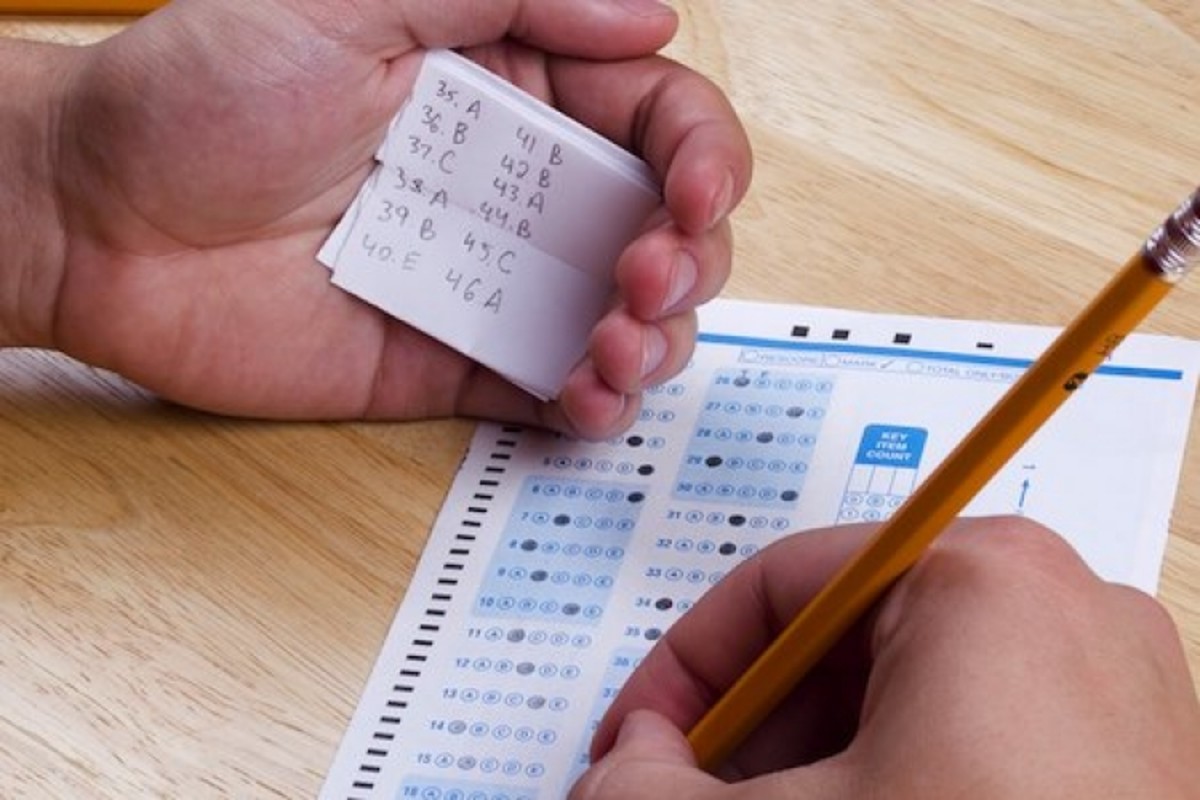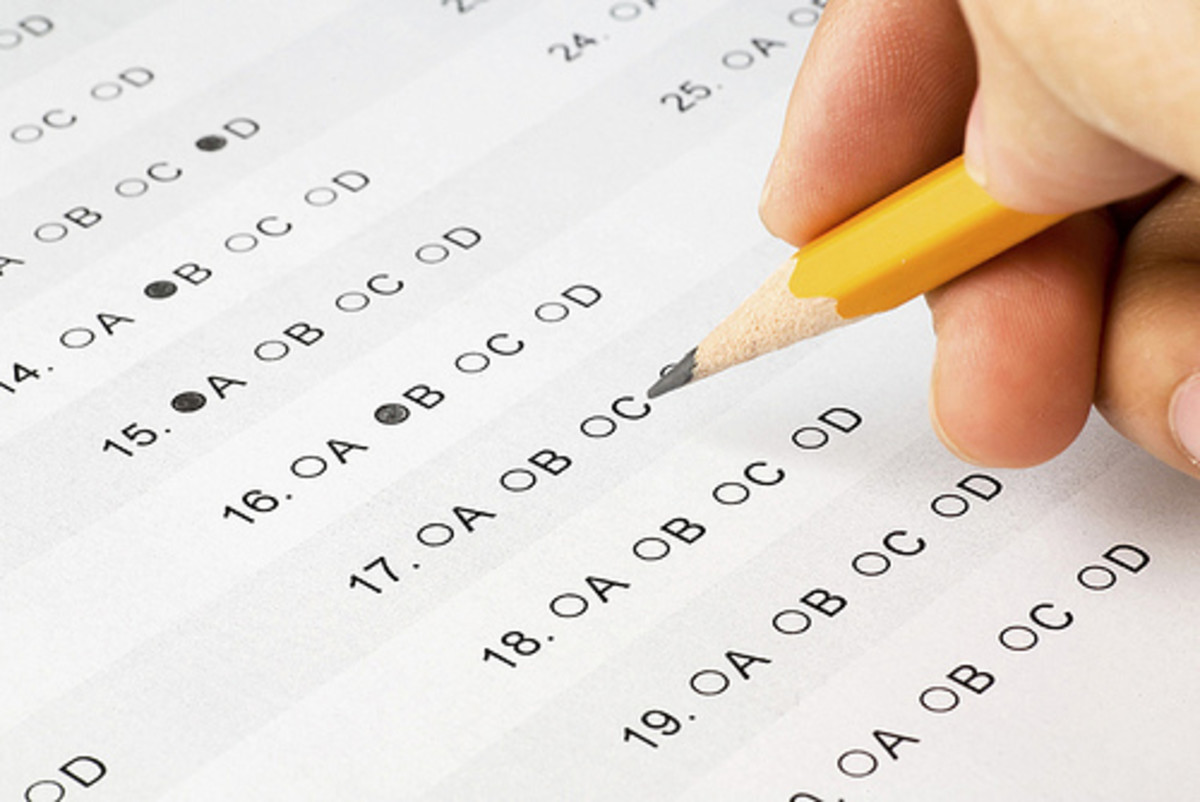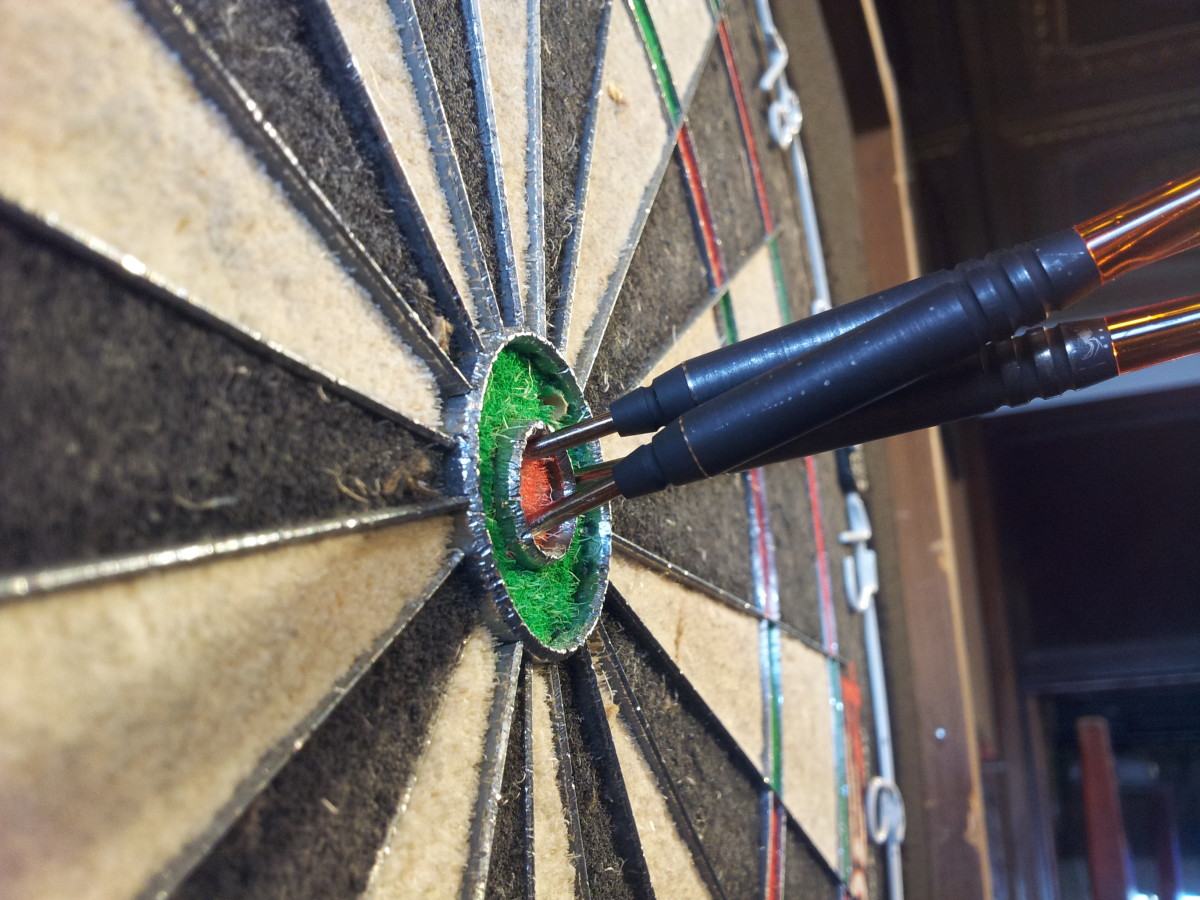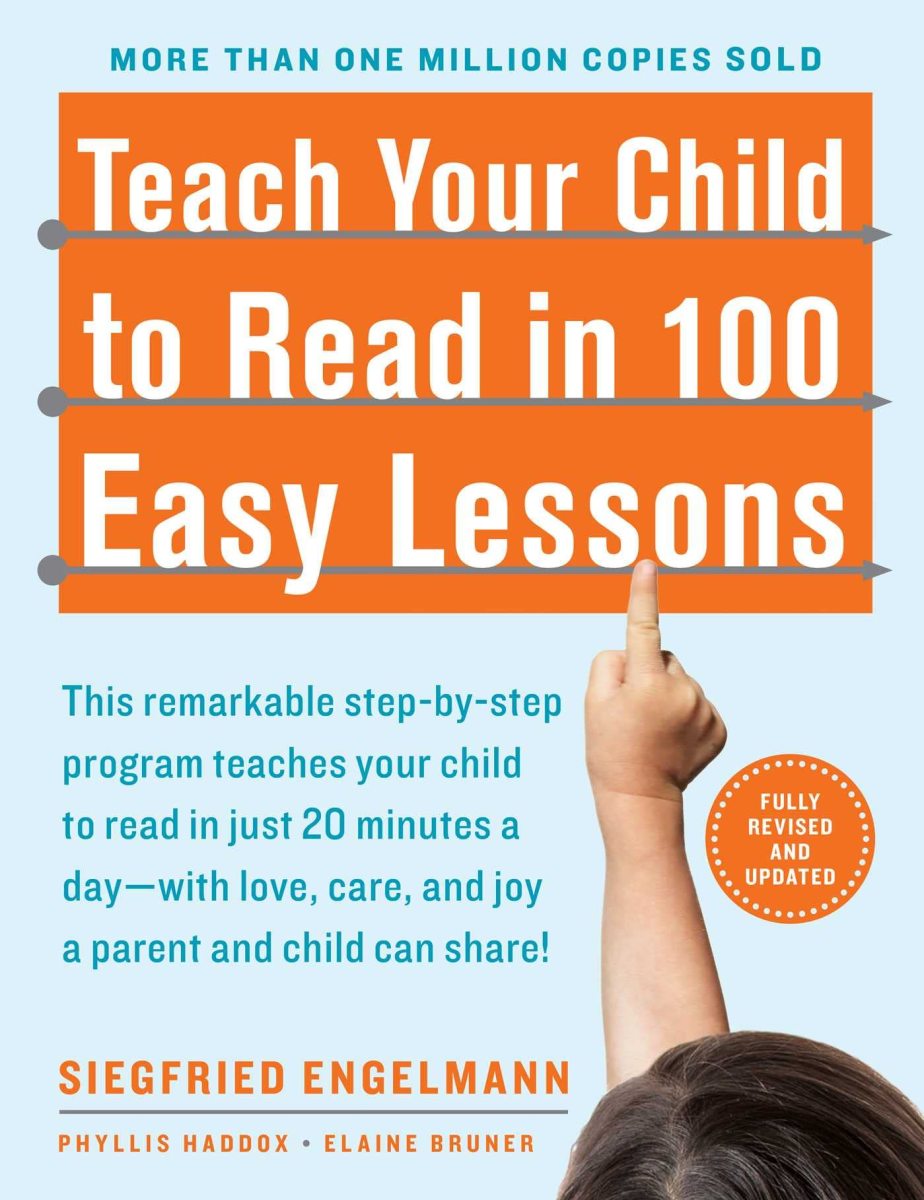How You Can Pass Exams. Get Good Results and High Marks in Examinations

Introduction - the importance of exams
"One in 12 A-level exams (8%) has been awarded the new A* grade as pupils scored another record-breaking year of results" .
I'm writing this article on Thursday 19th August 2010 and the above quotation is taken from BBC News web site (http://www.bbc.co.uk/news/education-11012369). Exam results are getting better every year. The pass rate rose for the 28th year in a row, with 97.6% of entries gaining an E or above, up from 97.5% in 2009 and 27% of entries gained an A or A*. There has been more competition for university places.this year than ever before according to Ucas. The A* level has been introduced this year for the first time in order to distinguish the very brightest of the bright and getting those top marks and high scores has never been more important. This article is not about how to cheat, how to get good marks easily, how to pass without effort. It is simply about good study practice and exam technique. The rest is up to you.
I thought this might cheer you up a bit though:
"Examinations are formidable even to the best prepared, for the greatest fool may ask more than the wisest man can answer". Charles Caleb Colton
Check out my qualifications below .
Study and preparation are key to passing examinations
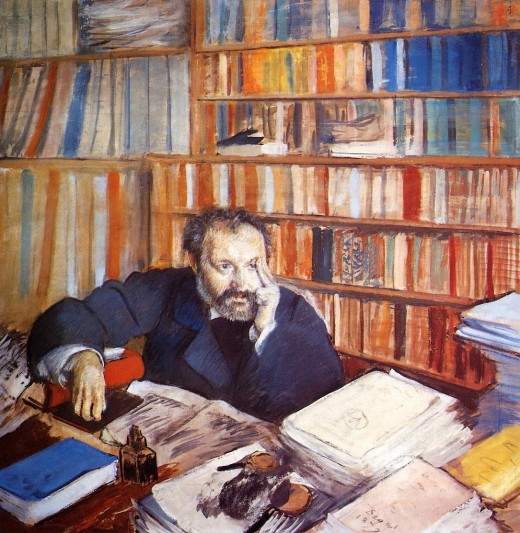
What you need to do
My background is in the arts and this advice is aimed at the traditional three hour, essay type exam paper set in England for 16 and 18 year olds, but the advice will also be useful for a range of other exams that rely on learning a body of knowledge and facts which are then used to write an essay answer in the form of an argument.
Do your exam research
What are the examiners looking for? If you have a teacher or tutor, they will normally have done the research and will deliver the information in the correct form and also tell you explicitly what you have to do. Look at past papers, examples of good answers, and any guidance available from the examination boards.
Find out how the marks are allocated. How many, for example, on the quality of writing, spelling, shape of the essay? Do all questions and sections of the paper carry the same marks or are some weighted more heavily than others? How many on facts and points, how many on argument? Tailor your answers to ensure that you pick up as many points as possible and that you are putting your effort into the areas where you will pick up the most marks.
Read further articles and books on exam technique (well before you sit the exam). Two books that I found very useful are How to Achieve 100% in a GCSE and How To Pass Exams: Accelerate Your Learning, Memorise Key Facts, Revise Effectively - you can buy both from Amazon - see below.
More Advice on Exam Techniques
Exam preparation - prepare well before the examination
Practice
Passing exams is about technique and knowing the system. Practice does make perfect. Use past papers, sit down for the time allocated, do the exam under exam conditions, get your paper marked and get good feedback. Where could you improve?
Learn your facts
You have to list key facts and dates and sit down and learn these off by heart. Some people say that it is more effective to do this last thing at night before you go to sleep, try it - it certainly won't do any harm.
Reherse your material
You should be writing essays or doing tests on a frequent and regular basis so that you are constantly reading and analysing the body of material. Going over the information that you have been given, taking notes, working with that material by selecting helps you to learn as you progress through the course.
Start real revision well before the exam
For A levels or other major exams at 16 or 18 years old which take place in June, start revison in February.
Develop your essay-writing skills
Learn how to write a good strong essay with an introduction, body or argument and conclusion. The argument should be clearly stated, well laid out and all statements supported and illustrated by facts.
Use as few words as you can whilst retaining a fluid writing style. Practice précis - in other words cut out all unnecessary words and sentences, as this will take up valuable time. Aim for point, point, point. Ask yourself, how many points would I award that sentence.
How to make exam notes
Begin your examination preparation with exam notes.
Go through all your notes, organise them, and reduce them to key headings. Then for each key heading add up to, say, 10 points maximum. All the points should be less than one line long. Your revision notes for a history exam may look something like this:
A. Heading
- Point, date, fact, quotation etc
- Point, date, fact, quotation etc
- Point, date, fact, quotation etc
- Point, date, fact, quotation etc
- Point, date, fact, quotation etc
- Point, date, fact, quotation etc
These should jog your memory, act as prompts, and you should be able to 'fill in' the rest of the story to put flesh on these bones.
Write these very clearly and neatly or type them. Perhaps use one side of paper only. Use colour if this helps and anything else that will enable you to picture your notes, pictures, cartoons, symbols. Number your points so that you know how many there are and this will help you to know if you have missed any important points out.
Remember, the aim is to be able to visualise your notes.
Writing these notes and points out is not a waste of time. As you work with the material you will learn it. Sorting and organising it helps you to think about it and digest it.
Start to learn these notes by heart nearer to the time of your exams. Take one subject and start a couple of months ahead. See how long it will take you to learn them. Then make a timetable and stick to it.
Physical preparation for exams
I overlooked this aspect of exam preparation totally in my exam-taking youth, but now that I'm older and wiser I see how important this aspect is to examination success and we are all now so much more aware of the inter-relationship between the mind and body.
Eat well
Firstly make sure that you are well-nourished and that you don't take too many stimulants such as coffee or depressants such as alcohol. This goes for all manner of other toxins and drugs, legal and illegal. Try to eat fresh foods: fruit, vegetables, dairy products and a little meat. Avoid processed and 'fast' foods and try to eat regularly, allowing sufficient time for calm meals. A healthy body goes will a healthy mind. Your mind needs to be as fit as possible!
Take exercise
Endless studies have shown that mental ability increases if the body has good, aerobic exercise. If nothing else, walk. Half an hour fast walking every day is very good for you. I'd go further and say swim, join an aerobics class or play football, tennis etc.
Rest and Sleep
Make sure that you sleep well, sufficiently and regularly.
Just before the exam
Immediately before the examination, make sure you get a good night's sleep and eat a good, nourishing breakfast. Again many studies have shown that children who skip breakfast have poorer concentration than children who eat a good breakfast.
Sugar and concentration
Perhaps it would be a good idea to take a piece of fruit to eat just before the examination to keep the blood sugars up.
I would have said avoid sugar rushes though in the form of refined sugar in cakes, sweets and the like, but I recently watched a TV programme where two brothers, identical twins) followed different diets and they were then monitored to see what effect the diets had on their bodies and brains. One brother was given a high fat diet and the other a high sugar diet.
One trial involved the brothers trading for a day on the stock market. Huge concentration was needed together with mental agility and stamina - exactly what you need to perform well in examinations. The brother on the fat diet did very badly, but the sugar diet was much more conducive to the task.
I would still be wary of taking in large quantities of refined sugars because of the downside after the rush. You might like to do a bit more research in this area.

Mental preparation for examinations
Exam nerves
How do you deal with exam nerves? This is a very difficult aspect and the answer depends very much on how badly you are affected. If your nerves are so bad that it prevents you taking examinations at all perhaps a visit to the doctor to see if they can prescribe something to calm the nerves for you, or refer you to another practitioner such as a herbalist, homeopath, hypnotherapist or similar.
Don't self medicate, take drugs or alcohol, these are all harmful to your health and mental well-being
You could try yoga or meditation or learn breathing techniques. How about joining a choir or take up a similar leisure activity where you are socialising, but also letting out a bit of tension?
Optimum working time
At University I shared a flat with a Psychology student. She had learned that the optimum study block was 45 minutes, so all the students studying for finals in our flat would work for 45 minutes and then come out of their rooms for 10 or 15 minutes break. This system worked well for us.
One other thought; we were told that you remember things better if you read through them just before you go to sleep. Take your notes to bed - it won't do any harm so long as it doesn't keep you awake too long.
No cramming at the last minute
Rest the night before the exam. Go to bed early, get a good night's sleep and arrive at the exam calm. If you don't know the material by now, the next best thing is to have a clear mind so that you can improvise!
In the examination room stay calm and don't panic. See below for more exam-room techniques
Hypnotherapy for exam nerves
Strategies in the exam room
You have to beat those nerves. When you look at the paper you will probably panic (I used to!) and think you can't answer the questions.
Stay Calm
- Take a few deep breaths and calm right down. Use several of your valuable minutes to do this.
- Then take ten good minutes to read the questions and choose those that you feel you can get the most points for.
Choose wisely
- Remember, don't choose your best subject if it is teamed with something you don't know about. For example you know 'A' really well, but don't touch it if the question is Compare and contrast A with B - unless you also know 'B'.
Read the question
- Read the question, and read it again - and again. Teachers always say this and people always make the mistake of not doing it. To help you to really read it, underline and or ring the various sections of your chosen question.
- Answer the question. Answer it exactly. Answer the question, the whole question and nothing but the question.
- Take time to plan your answer. You can make notes before you begin and put a neat, diagonal line through this so that it will not be marked.
Timing strategy in exams
You will have found out how points are allocated when you researched for this exam. If you are to answer 4 questions in 3 hours and each question carries the same number of marks, then give each question the same time. Subtract your first ten minutes reading and thinking time, then divide the rest into 4. Start with your worst question and try to squeeze every point possible out of it. Make sure that you complete each question in time. Don't over-run. If you answer only one out of four questions you can only gain 25% at most - no matter how brilliant this answer is. Finish with your best question. Get as many points out of this also. If you are running out of time but you still have lots more things to say, resort to note form to squeeze out every last mark.
On the other hand, if you have extra time, go back to your other answers and try to dredge up an extra point or two.
Speed
Write your answer as quickly as you can. Remember you are trying to get points. For every valid statement, fact, date that you use and each valid step of your argument you will gain points. Keep your introduction very short and succinct. Keep your summary very short and concentrate on putting down information that the examiner can award points for.
Try marking your own work. Go through an answer and tick every point made. Ask your tutor to work with the class to produce a model 'perfect' answer.
Quick resume of this examination advice
Physical Preparation
| Mental Preparation
| Revision
| Exam Techniques
|
|---|---|---|---|
Eat well
| Relax
| Make revision timetables
| Reserch your examinations
|
Cut down on toxins, stimulants and depressants
| Deal with panic
| Make revision notes
| Make sure you know what is expected of you
|
Take exercise
| Learn your material thouroughly
| Make sure you know how marks are allocated
| |
Take enough sleep (normally 8 hours)
| Practice on past exam papers
| ||
Work out timing strategies for the exam itself
| |||
Practice effective examination answers
|
Conclusion - organisation and hard work lead to success in examinations
To conclude, there are no shortcuts to exam success. You must know your material, know what the examiners are looking for and develop a good exam style. Then you must make good revision notes that you can learn by heart. You must learn key dates, quotations and facts by heart. In the exam itself you must stay calm, choose your questions wisely, answer the question exactly and gain as many points as possible.
What to do next
I was about to write a checklist of what you should do next based on this article, but then I thought that this is exactly what you should do. Get onto your computer or pick up a pen and paper, then neatly, with good headings and short, memorable, numbered points create a checklist of things to do.
... And I wish you all the success in the world!
My examination qualifications
- 9 'O' Levels
- 3 A grade A levels and one 'D' grade A level (General studies and my Maths is almost non-existent!!)
- 2i Degree in Art History at Edinburgh University
- 3 years working as a teacher of Art History to Advanced level at Notting Hill and Ealing High School and in Adult Education in London, UK
- MLD Landscape Design Manchester University
- I now run painting holidays and courses at Les Trois Chenes Bed and Breakfast and holiday cottage in Limousin, France
For more information about our B&B, holiday cottage or painting holidays have a look at our web site www.lestroischenes.com or contact me on info@lestroischenes.com.
Work methodically and thoroughly for best results

Have you found this article useful?
Will this advice help you with your exams?
© 2010 DaisyChain



